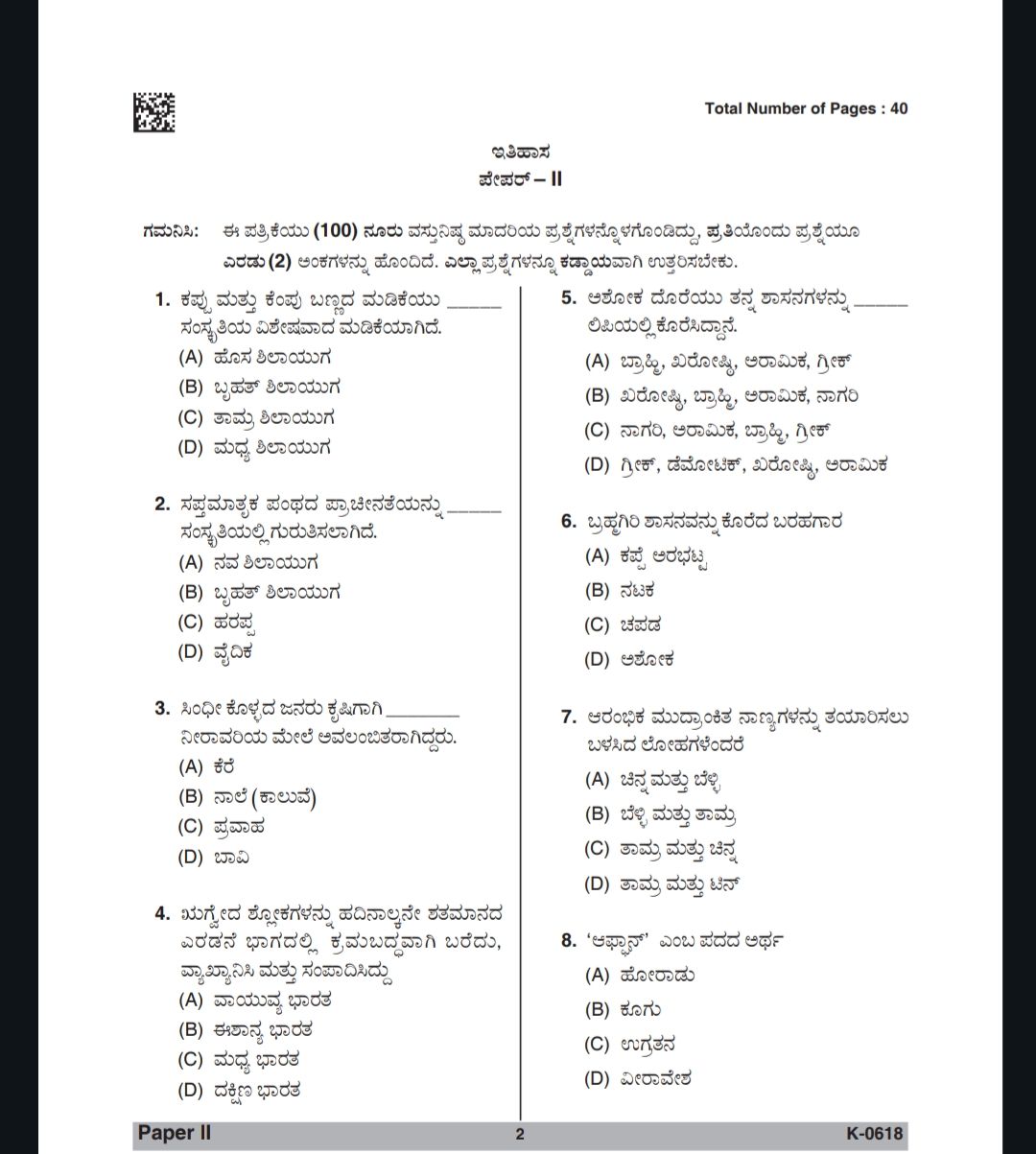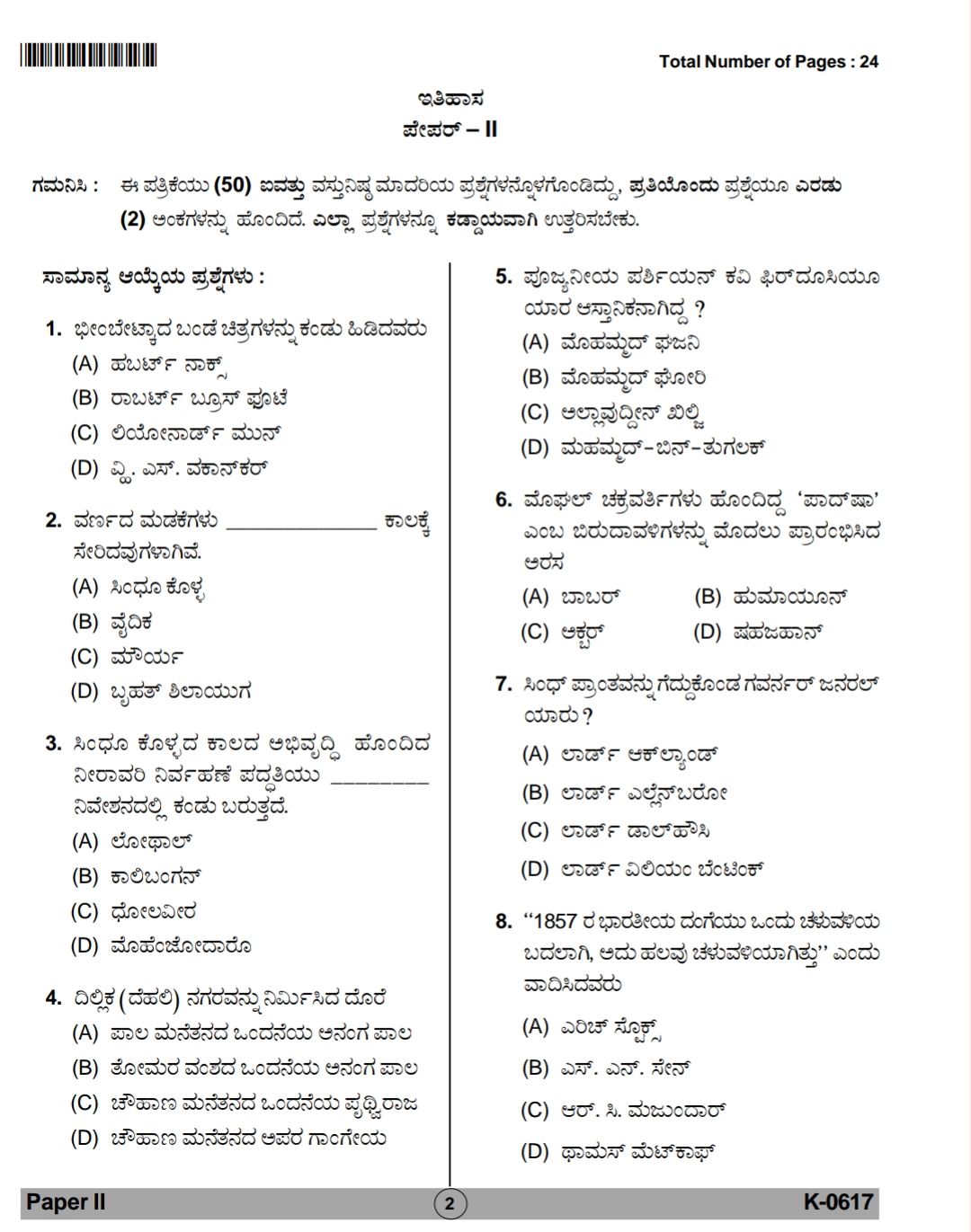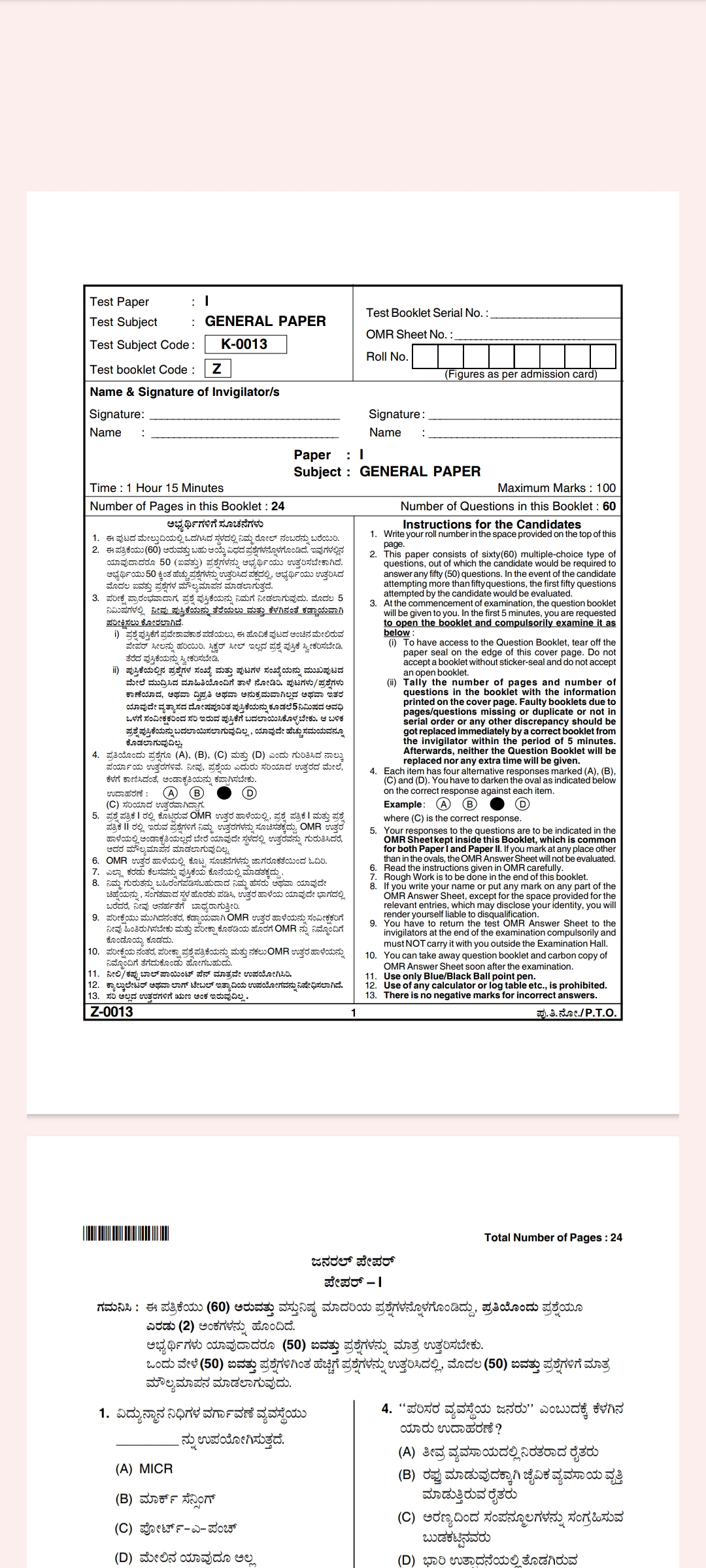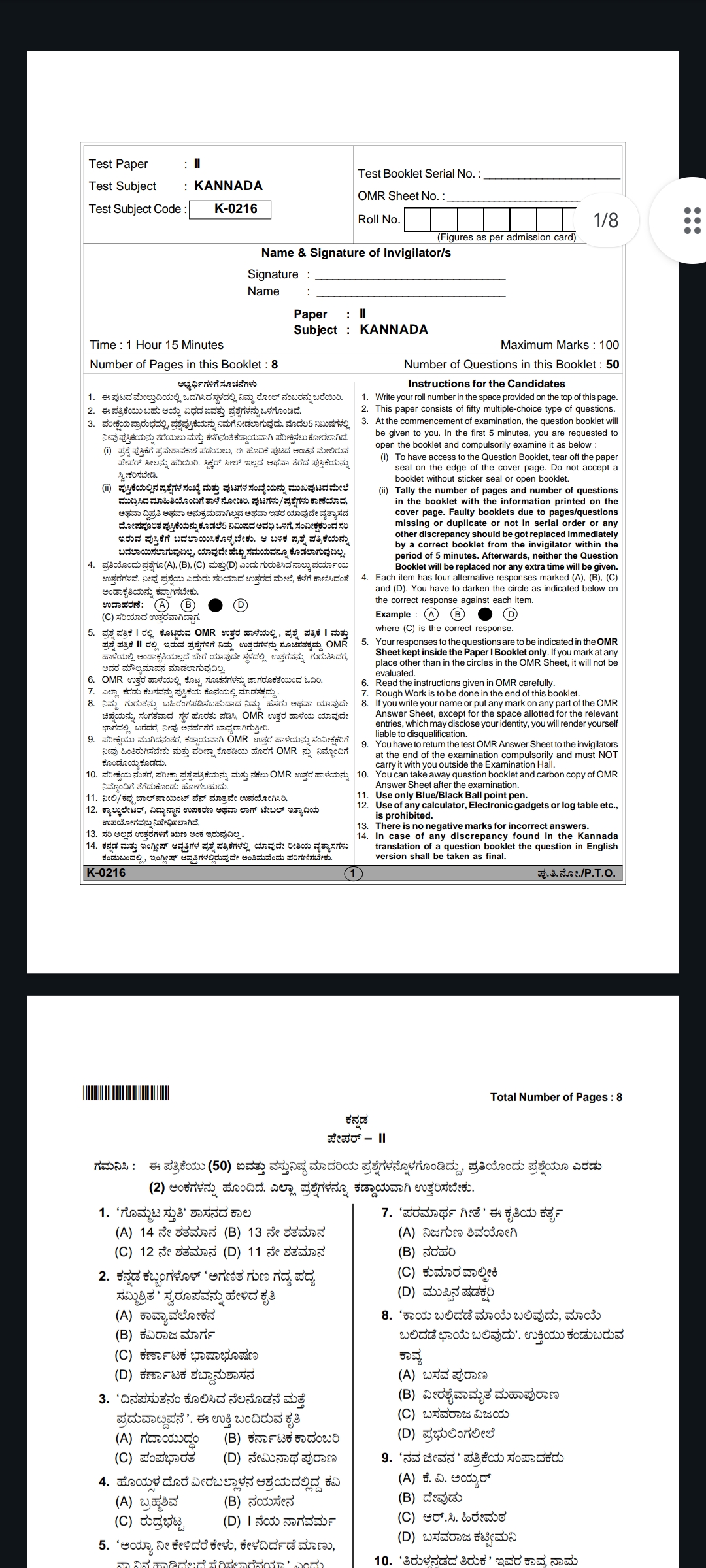Preparing for the KSET (Karnataka State Eligibility Test) in History requires a systematic approach. Here are steps to help you prepare effectively:
1. **Understand the Syllabus:** Get acquainted with the official KSET syllabus for History. It will outline the topics and subtopics you need to cover for the exam.
2. **Study Material Selection:** Choose quality study material such as NCERT textbooks, reference books by renowned historians, and study guides recommended by experts. Make sure to cover all aspects of Indian and world history as per the syllabus.
3. **Create a Study Plan:** Develop a structured study plan allocating time to each topic. Ensure equal focus on ancient, medieval, modern, and world history. Break the syllabus into manageable sections for easier understanding.
4. **Make Notes:** While studying, take concise notes summarizing key events, dates, important personalities, movements, and significant historical developments. This aids in quick revision.
5. **Focus on Concepts:** Understand the underlying concepts rather than memorizing facts. This approach will help you answer questions more comprehensively during the exam.
6. **Refer to Previous Papers:** Solve previous years’ question papers to grasp the exam pattern, types of questions asked, and to gauge the difficulty level. It will also assist in understanding which topics are frequently tested.
7. **Practice Mock Tests:** Take mock tests regularly to simulate exam conditions. Analyze your performance, identify weak areas, and work on improving them.
8. **Revision Strategy:** Regular revision is crucial. Revise historical events, timelines, and concepts frequently to reinforce your memory.
9. **Utilize Online Resources:** Use online platforms, educational websites, and resources like video lectures, documentaries, and online courses to supplement your studies and gain a deeper understanding of historical events.
10. **Stay Updated:** Keep up with current affairs related to historical discoveries, archaeological findings, or any recent developments in the field of history.
11. **Seek Guidance:** If you encounter difficulties or have doubts, seek guidance from history teachers, subject matter experts, or join study groups for discussions and clarifications.
Remember, consistent and dedicated preparation, combined with a deep understanding of historical events and concepts, will aid you in excelling in the KSET History examination.
JOIN OUR GROUP
Sprdhavijetha.in
🍀ನಮ್ಮ ಟೆಲಿಗ್ರಾಂ ಗ್ರೂಪ್ ಸೇರಲು
Reading old question papers is a valuable part of exam preparation. Here’s a structured approach to effectively utilize old question papers:
1. **Understanding the Exam Pattern:** Analyze the structure of the question paper. Identify the marking scheme, types of questions asked, distribution of marks, and sections/topics covered.
2. **Topic Prioritization:** Recognize the recurring topics or sections that frequently appear in previous papers. Focus more on these areas while studying.
3. **Practice and Self-Assessment:** Solve the old question papers under timed conditions. This helps in improving time management and familiarizing yourself with the exam’s difficulty level.
4. **Identify Weak Areas:** Analyze your performance in solving previous papers. Identify the sections or topics where you face difficulties or spend more time. Devote additional time to strengthen these weaker areas.
5. **Learn Question Patterns:** Notice any specific patterns or trends in the questioning style. This may include the emphasis on certain concepts, repeated types of questions, or formats.
6. **Revision and Retention:** As you solve previous papers, revise the relevant topics immediately. It helps in better retention and understanding of the concepts.
7. **Seek Solutions and Guidance:** After attempting the papers, review the solutions or seek guidance to understand the correct methods and approaches for solving questions you found challenging.
8. **Mock Tests:** Use old question papers to create mock tests simulating the actual exam conditions. Regular practice in a timed environment improves speed and accuracy.
9. **Track Progress:** Keep a record of your performance in solving these papers over time. Monitor your progress to ensure improvement.
10. **Stay Updated:** While older question papers are helpful, ensure your preparation includes updates on any changes in the syllabus or pattern, if applicable.
Remember, the purpose of practicing old question papers isn’t just to solve them but to learn from them. Analyze your mistakes, understand the reasoning behind correct answers, and adapt your preparation accordingly.
NAME FILE: KSET Exam HISTORY questions paper
🍀FILE TYPE: PDF
🌿FILE size –
🌏FILE Download Option: yes
🎈File cost: free
🍀 questions paper
💫Edited file: no
🗓️Year 2018
🌐File link. Yes
👉File Language: Kannada
🌻 Scanned copy -yes
🪴Pages quality -yes
Page-40
✍️ subject: HISTORY
💫Uses of KSET EXAMINATION aspirant’s -yes
Special thanks 🙏 VISIT
Click here the blue tick and get the pdf
🤝 Share ಮಾಡಿ



